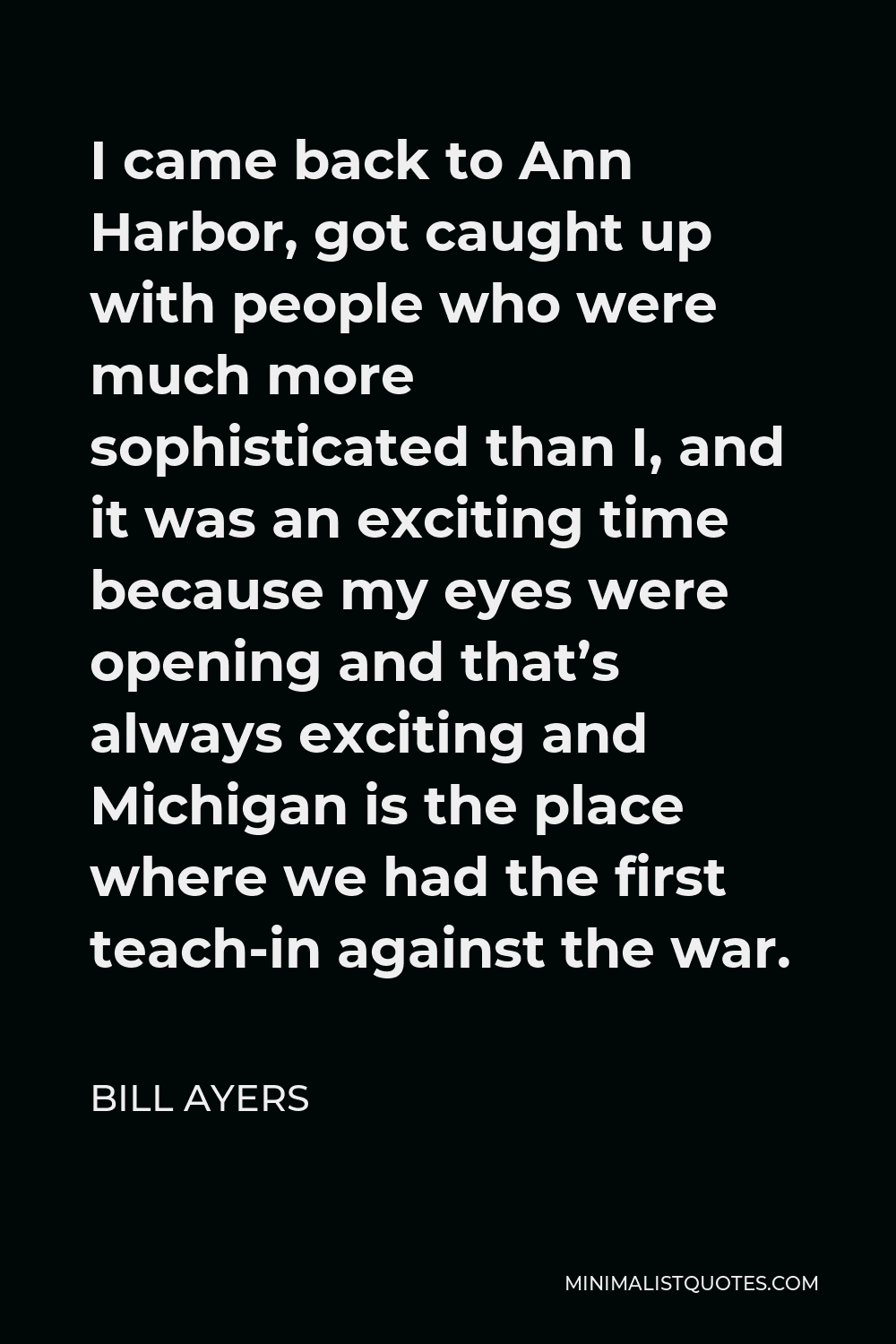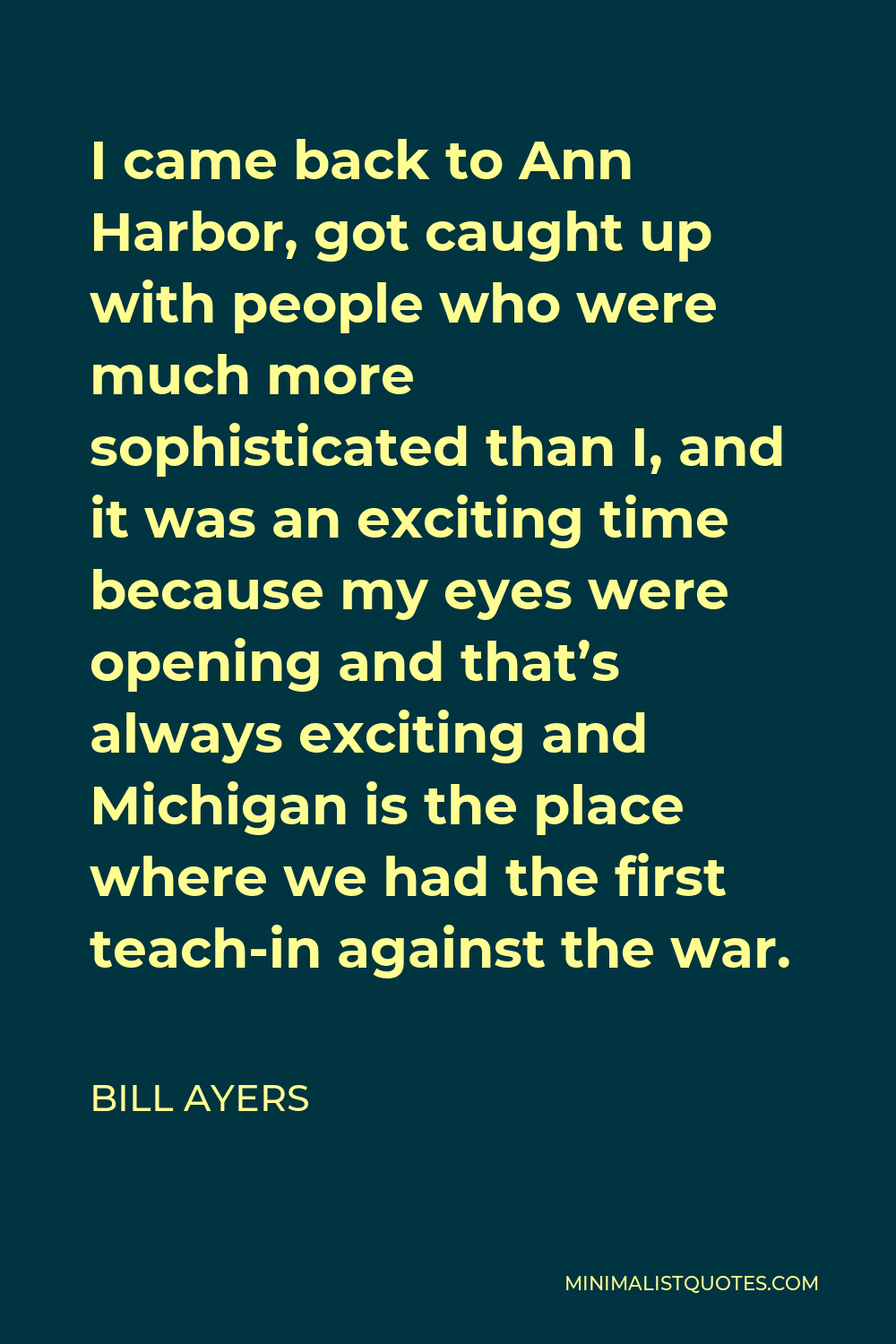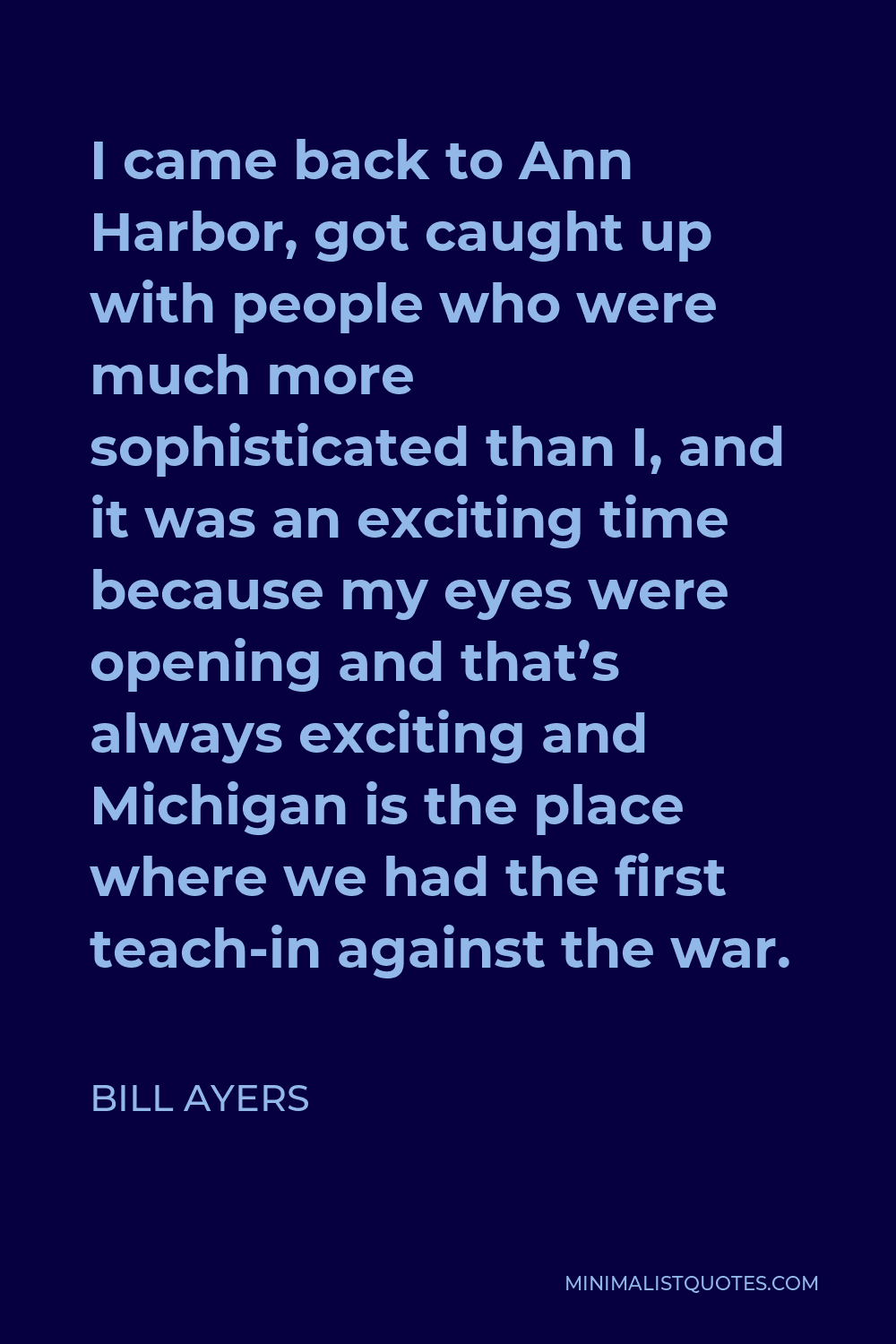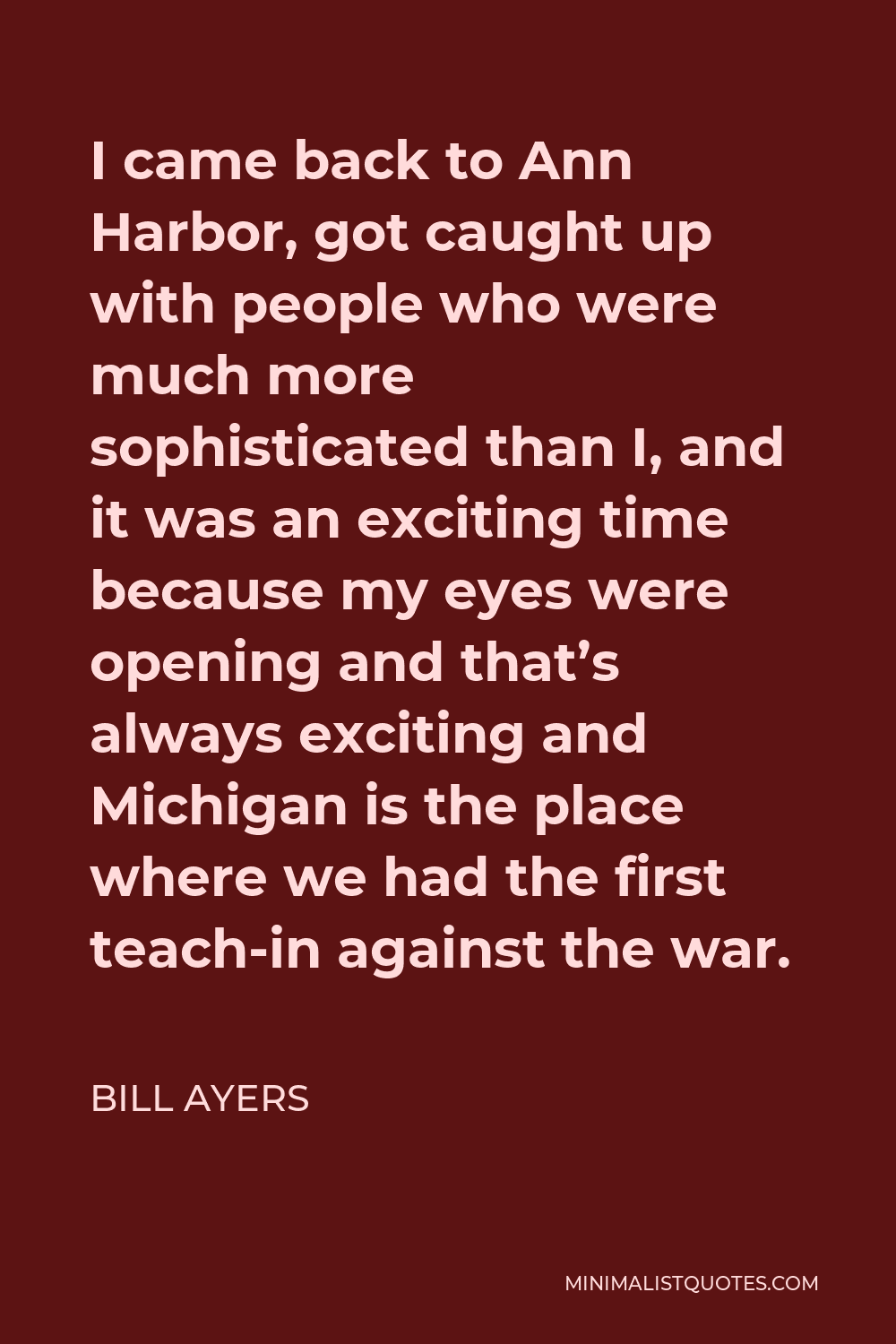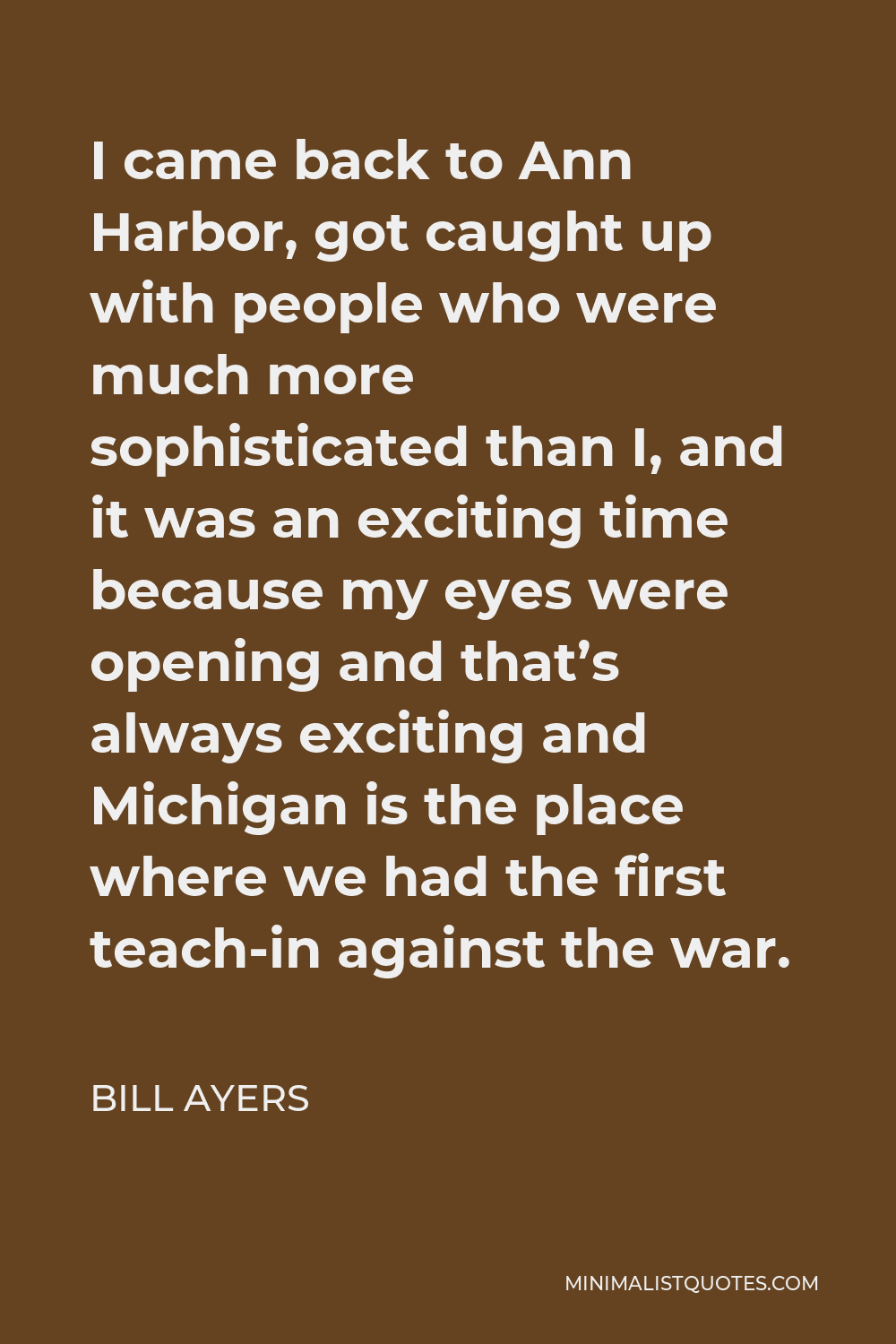It wasn’t [Barack] Obama per se; it was the feeling on the ground; it was seeing an old black woman in a wheelchair being wheeled by her son waving a big American flag, and then seeing a guy with his baby in his arms saying,
BILL AYERSI came back to Ann Harbor, got caught up with people who were much more sophisticated than I, and it was an exciting time because my eyes were opening and that’s always exciting and Michigan is the place where we had the first teach-in against the war.
More Bill Ayers Quotes
-





![Bill Ayers Quote - It wasn’t [Barack] Obama per se; it was the feeling on the ground; it was seeing an old black woman in a wheelchair being wheeled by her son waving a big American flag, and then seeing a guy with his baby in his arms saying,](https://minimalistquotes.com/images/it-wasnt-barack-obama-per-se-it-was-the-feeling-on.jpg)
-





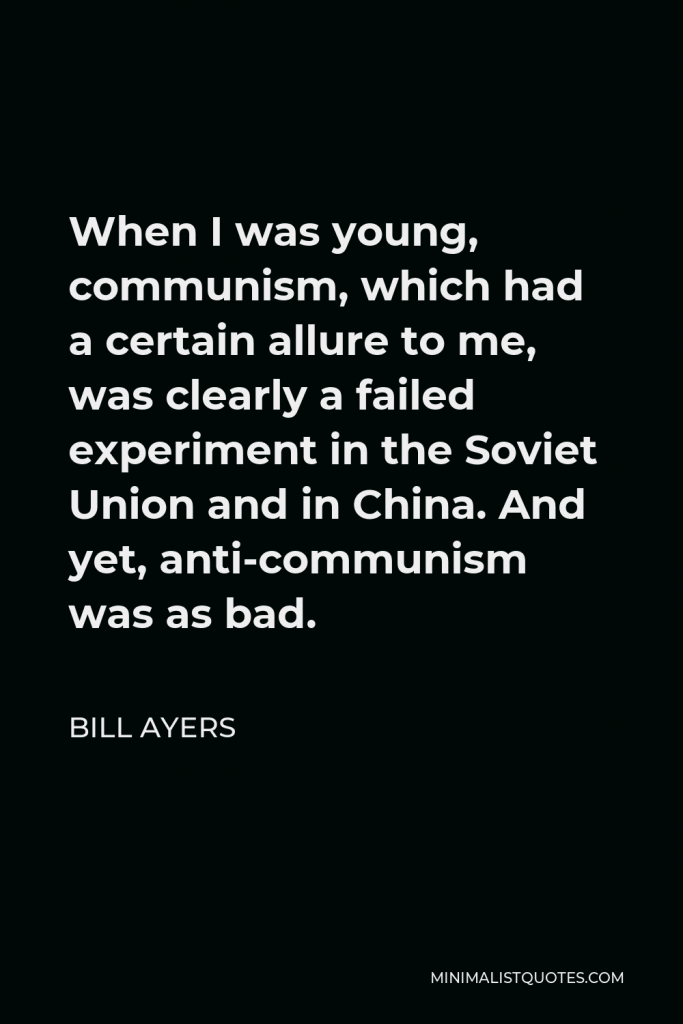

When I was young, communism, which had a certain allure to me, was clearly a failed experiment in the Soviet Union and in China. And yet, anti-communism was as bad.
BILL AYERS -





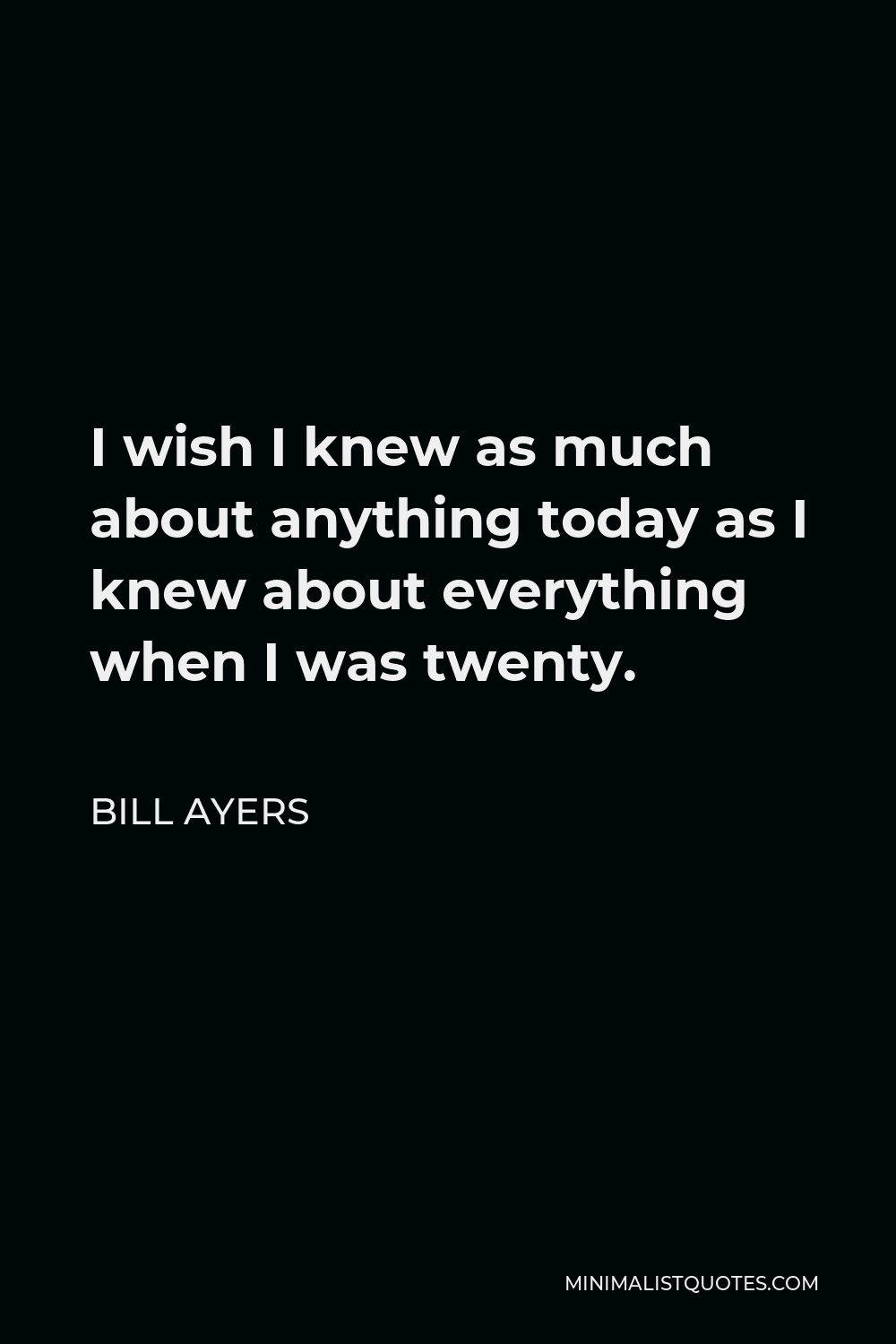
I wish I knew as much about anything today as I knew about everything when I was twenty.
BILL AYERS -





![Bill Ayers Quote - It was the Democratic Party, it was the Presidential election. We elected a president [Barack Obama]; we didn’t elect a king. So all the speculation in the next three months.](https://minimalistquotes.com/images/it-was-the-democratic-party-it-was-the-presidentia.jpg)
It was the Democratic Party, it was the Presidential election. We elected a president [Barack Obama]; we didn’t elect a king. So all the speculation in the next three months.
BILL AYERS -





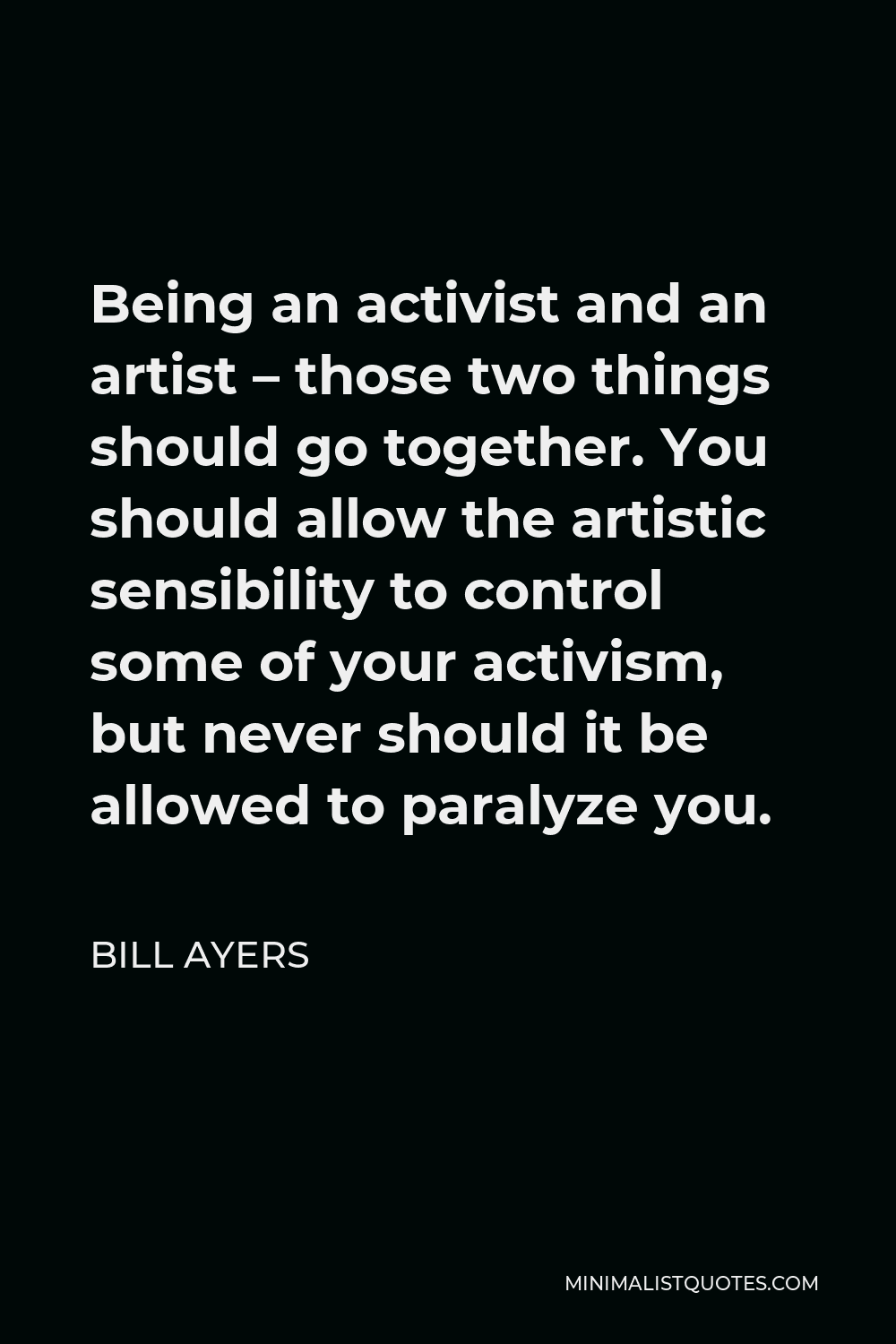
Being an activist and an artist – those two things should go together. You should allow the artistic sensibility to control some of your activism, but never should it be allowed to paralyze you.
BILL AYERS -





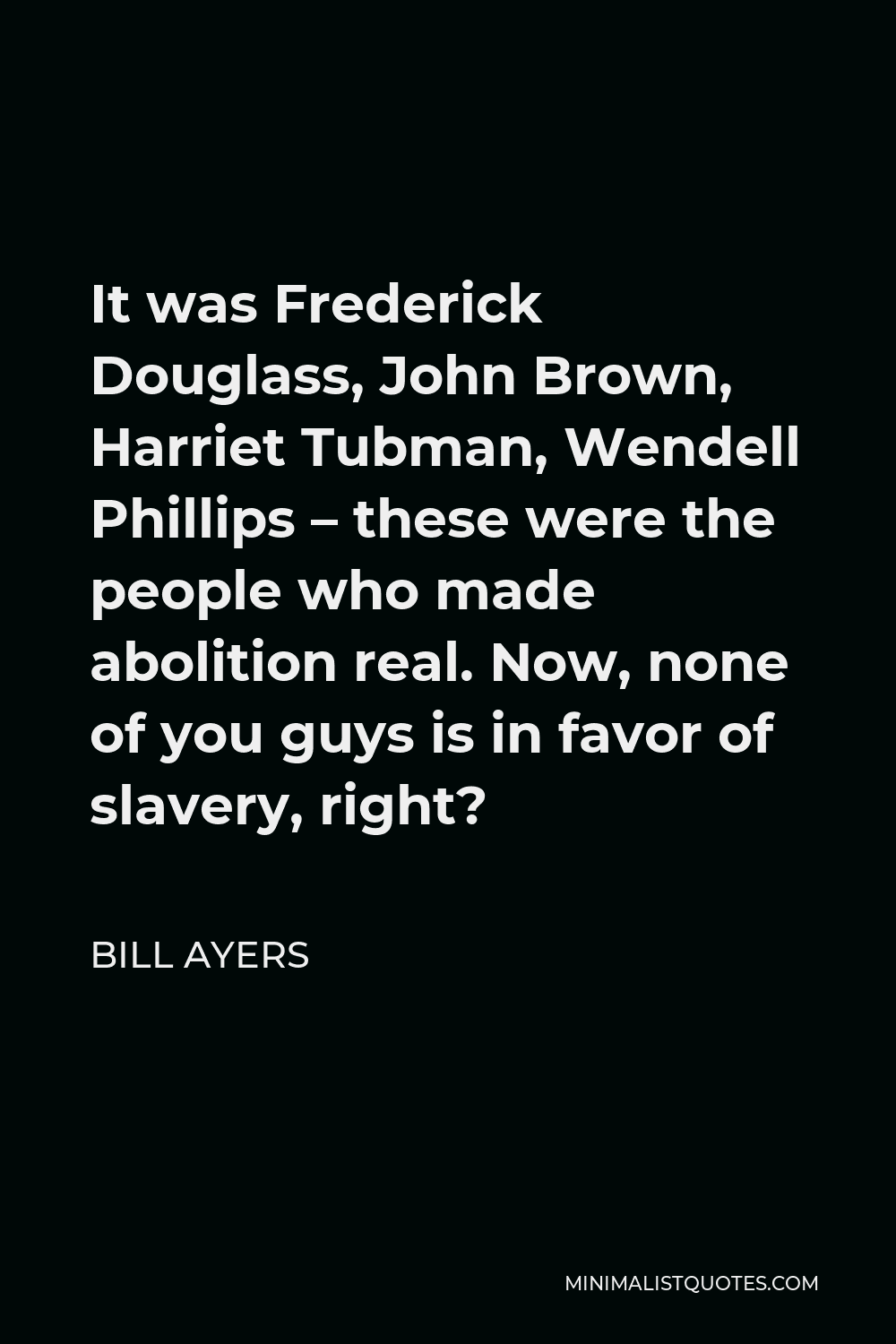
It was Frederick Douglass, John Brown, Harriet Tubman, Wendell Phillips – these were the people who made abolition real. Now, none of you guys is in favor of slavery, right?
BILL AYERS -





![Bill Ayers Quote - I’d been arrested many times by then. I’d been an organizer, so many things had changed over those three years [from 1965 till 1968].](https://minimalistquotes.com/images/id-been-arrested-many-times-by-then-id-been-an-org.jpg)
I’d been arrested many times by then. I’d been an organizer, so many things had changed over those three years [from 1965 till 1968].
BILL AYERS -





![Bill Ayers Quote - Everyone who knew [Barack] Obama from being in Hyde Park knew he was the smartest guy in any room he walked into; a decent, compassionate, lovely person; pragmatic, middle-of-the-road and ambitious.](https://minimalistquotes.com/wp-content/uploads/2022/12/everyone-who-knew-barack-obama-from-being-in-hyde--683x1024.jpg)

Everyone who knew [Barack] Obama from being in Hyde Park knew he was the smartest guy in any room he walked into; a decent, compassionate, lovely person; pragmatic, middle-of-the-road and ambitious.
BILL AYERS -





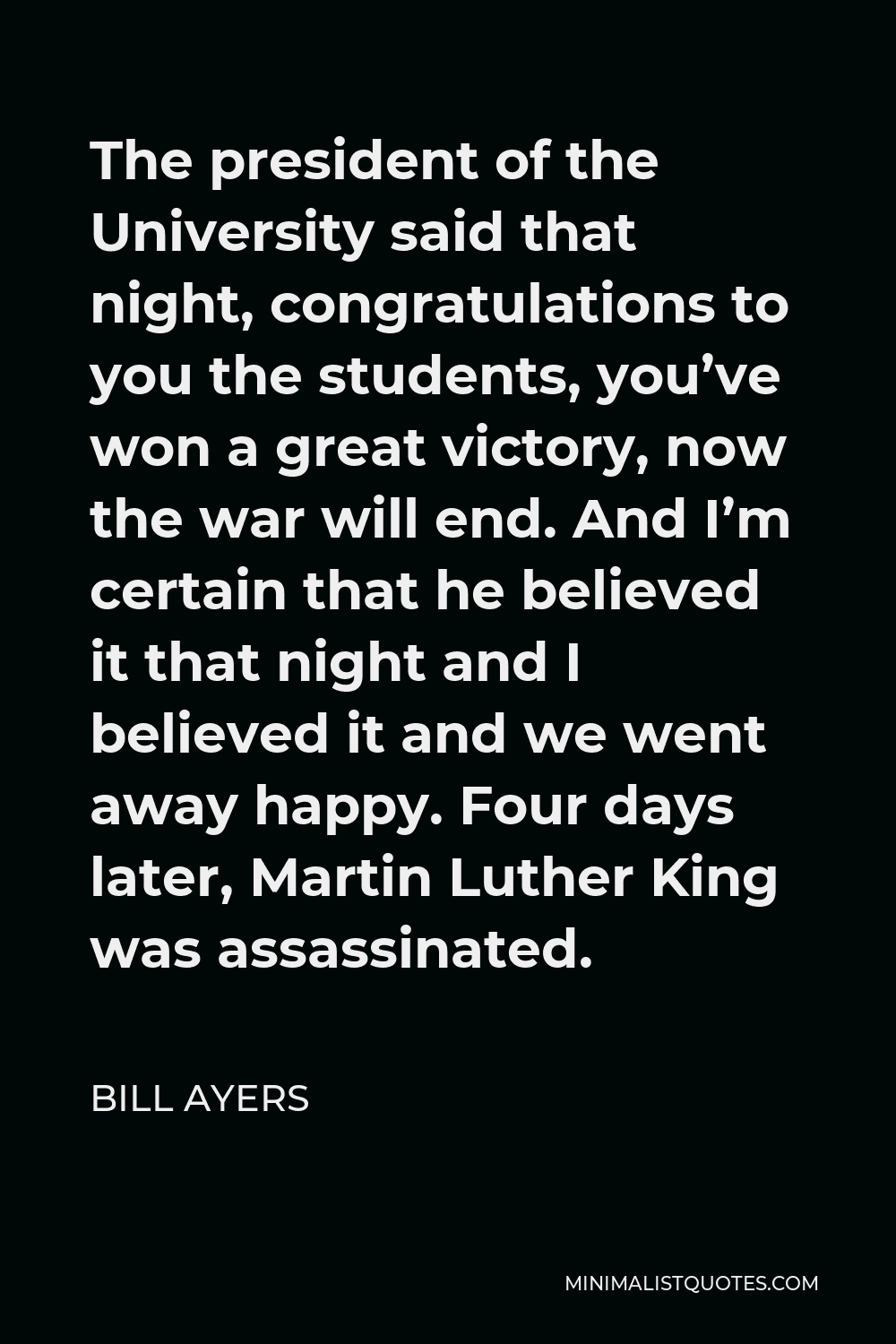
The president of the University said that night, congratulations to you the students, you’ve won a great victory, now the war will end. And I’m certain that he believed it that night and I believed it and we went away happy. Four days later, Martin Luther King was assassinated.
BILL AYERS -





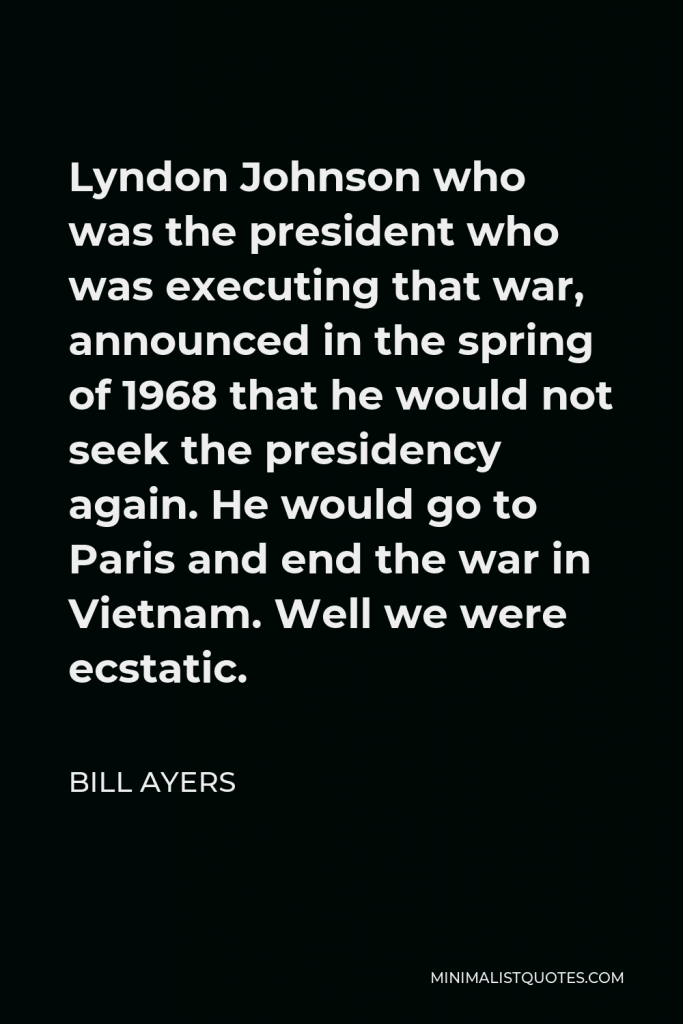

Lyndon Johnson who was the president who was executing that war, announced in the spring of 1968 that he would not seek the presidency again. He would go to Paris and end the war in Vietnam. Well we were ecstatic.
BILL AYERS -





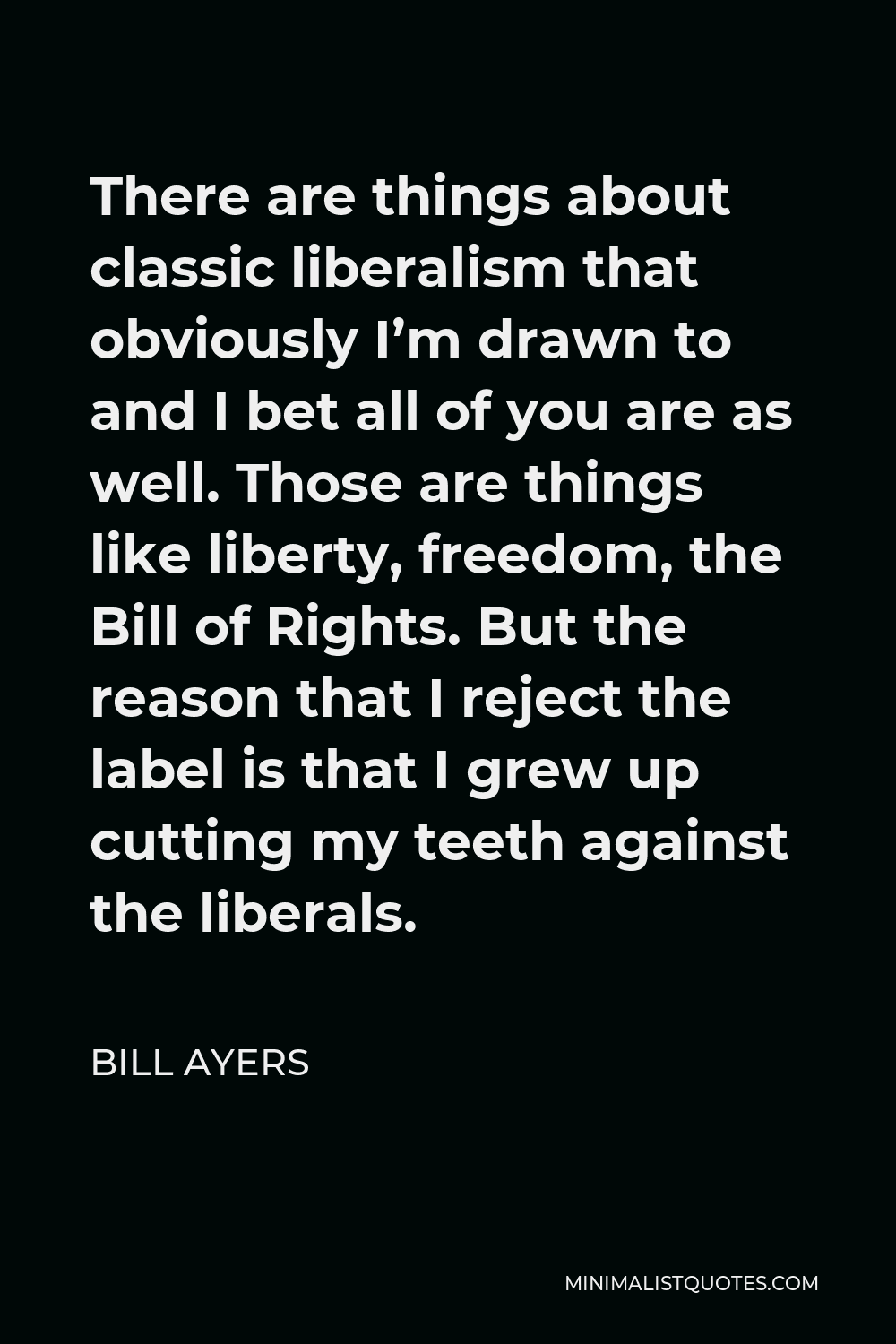
There are things about classic liberalism that obviously I’m drawn to and I bet all of you are as well. Those are things like liberty, freedom, the Bill of Rights. But the reason that I reject the label is that I grew up cutting my teeth against the liberals.
BILL AYERS -





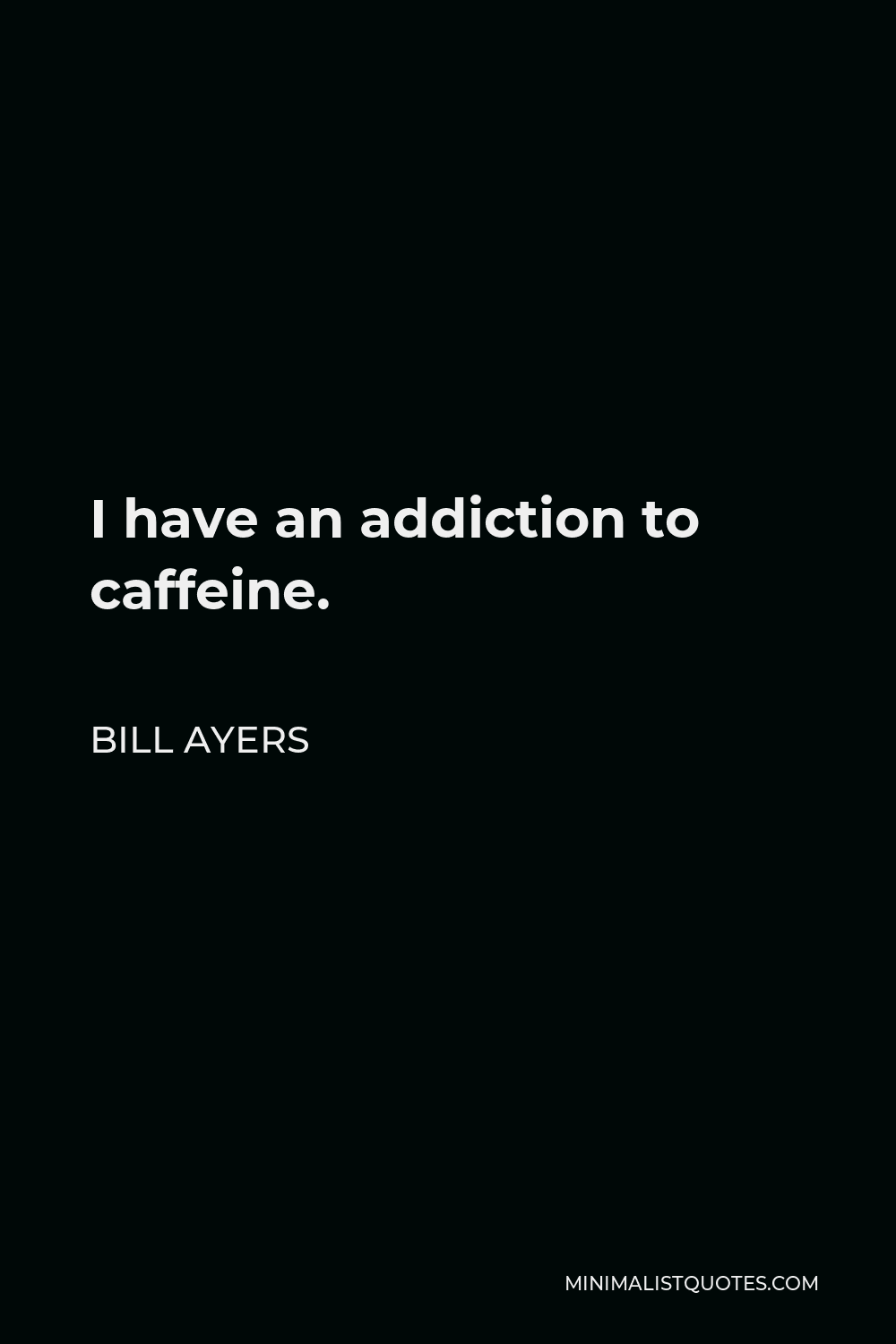
I have an addiction to caffeine.
BILL AYERS -





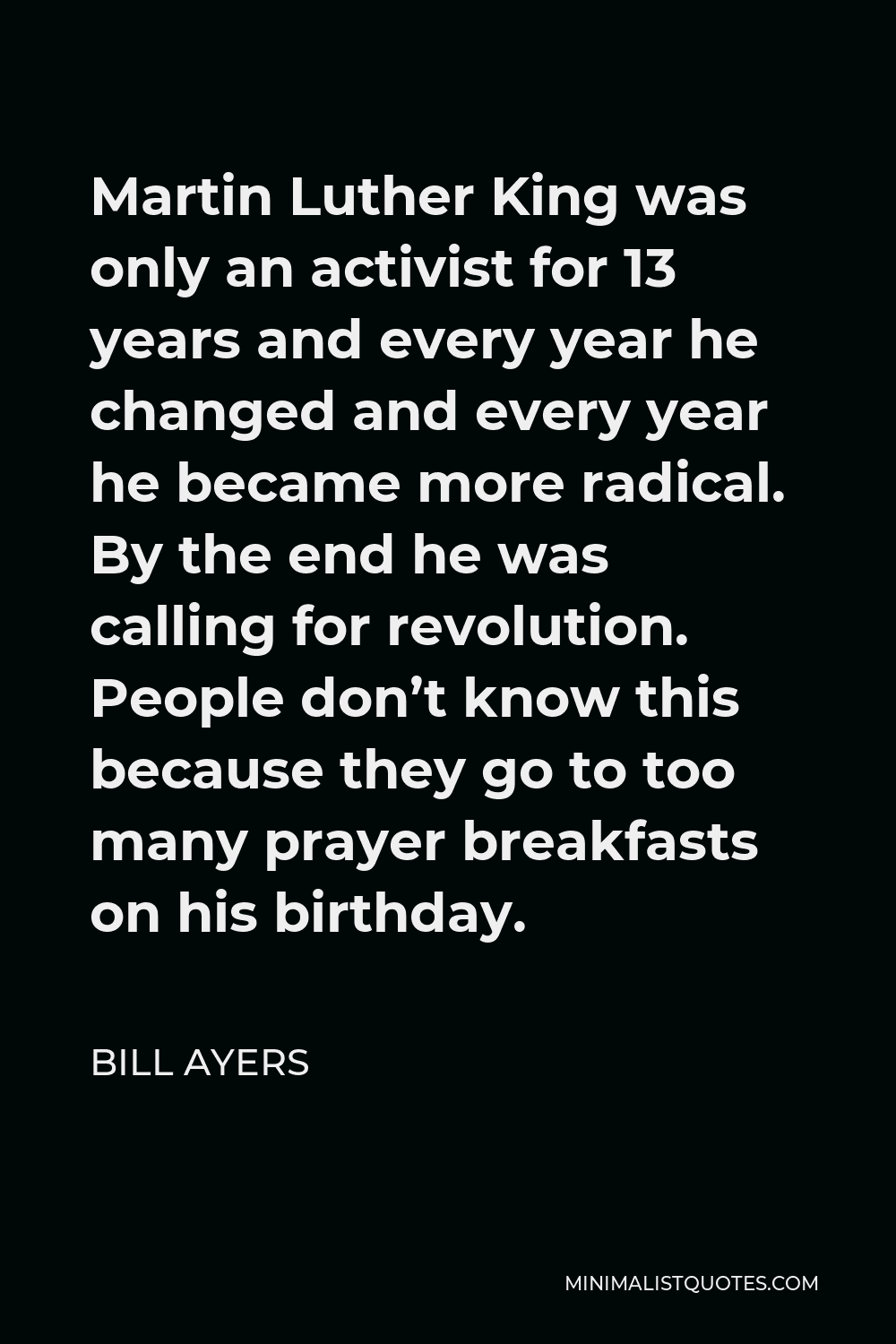
Martin Luther King was only an activist for 13 years and every year he changed and every year he became more radical. By the end he was calling for revolution. People don’t know this because they go to too many prayer breakfasts on his birthday.
BILL AYERS -





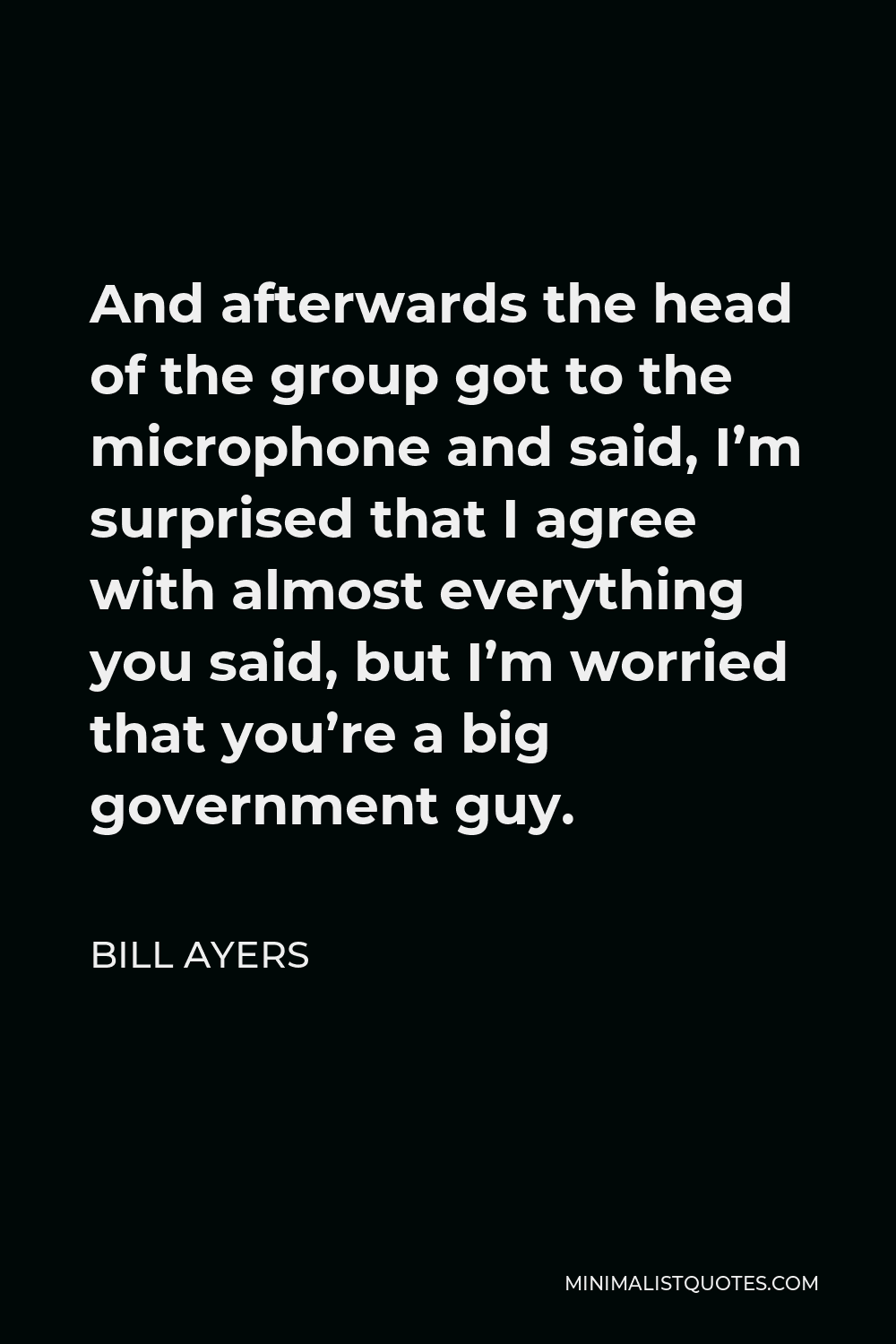
And afterwards the head of the group got to the microphone and said, I’m surprised that I agree with almost everything you said, but I’m worried that you’re a big government guy.
BILL AYERS -





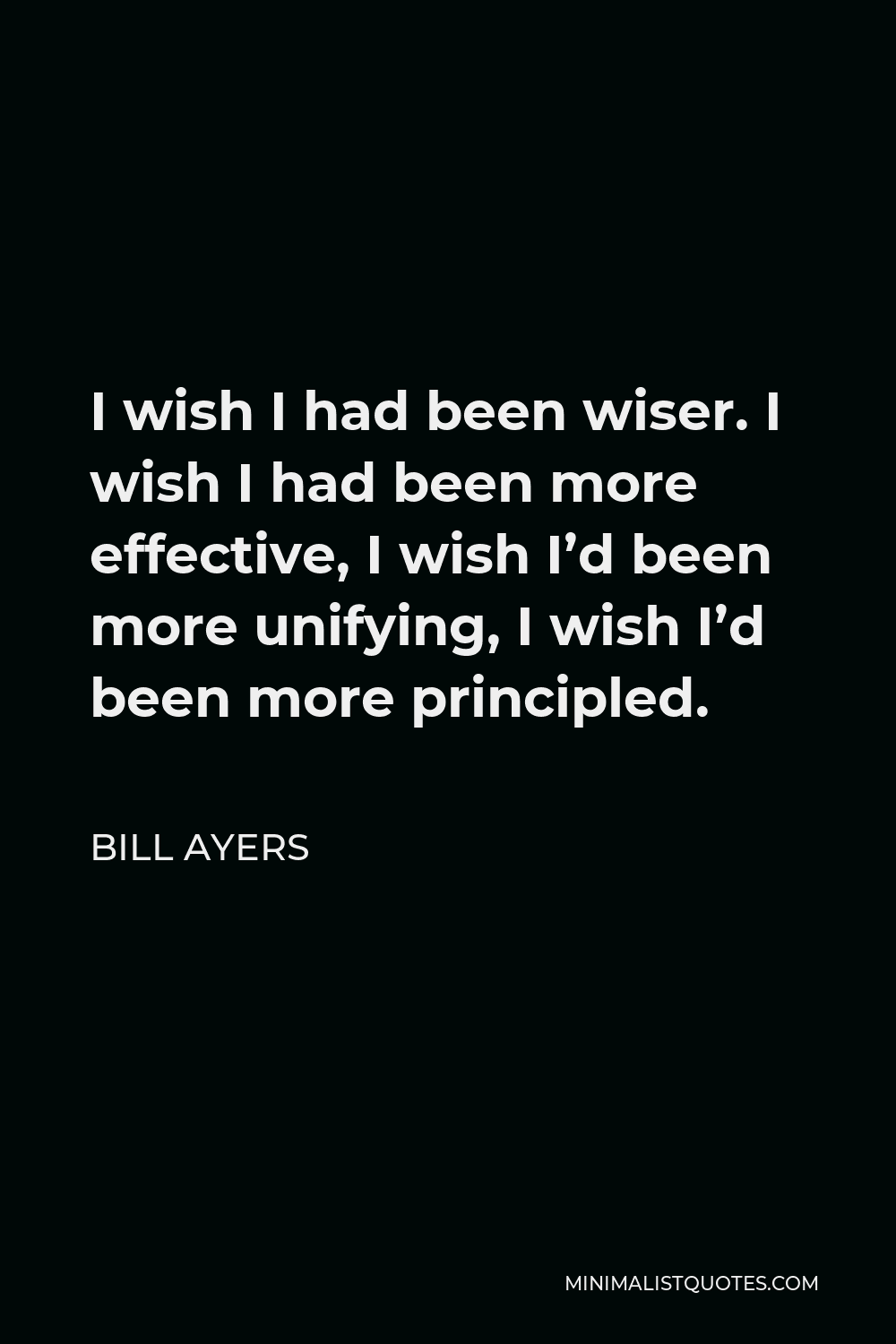
I wish I had been wiser. I wish I had been more effective, I wish I’d been more unifying, I wish I’d been more principled.
BILL AYERS -





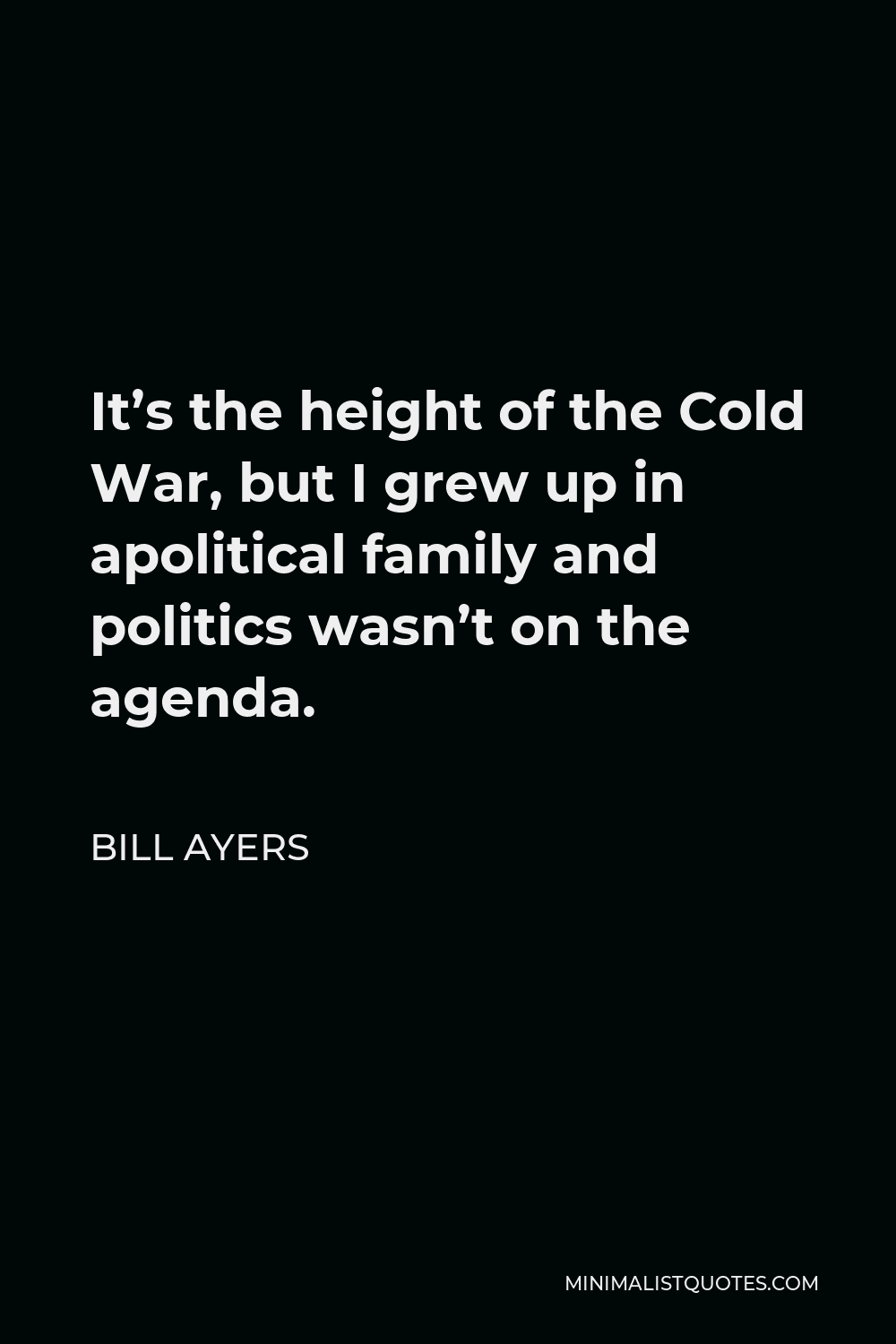
It’s the height of the Cold War, but I grew up in apolitical family and politics wasn’t on the agenda.
BILL AYERS
